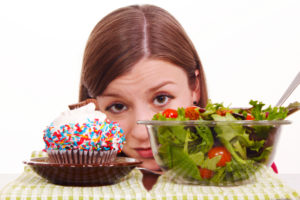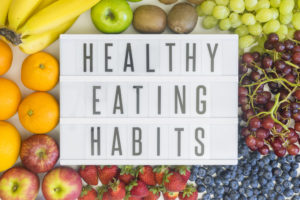Emotional Eating
Living a healthy lifestyle and maintaining a healthy weight do require a bit of discipline, but it’s definitely worth the effort. It’s easy to lose that positive mindset, though, when life gets in the way, and fall into the trap of emotional eating.
Read Simone’s article to find out exactly what it is and how to avoid it.

Putting an end to emotional eating
Dealing with life’s stresses and traumas, or experiencing any kind of grief can seem hugely challenging in itself, without the added burden of trying to control what - or how much - we are eating.
We’re all likely to get bogged down with work, family crises, illness, money worries, relationship issues, or bereavement at some point in our lives; and at these critical moments it can be really easy for things to go awry. Learning how to deal with stress, and our automatic reactions to it, can be truly life changing.
When you’re going through a bad patch you can easily fall back on food to get you through, but it’s usually the wrong stuff. If you haven’t got the time or energy to plan, shop and cook, turning to slices of toast, packets of biscuits and crisps, or takeaways and fast food (the things that provide “instant gratification” and deal with the hunger pangs) can seem the perfect solution.
In reality, however, emotional eating of this kind can have a huge impact on your emotional and mental health. Eating “rubbish” is likely to leave you feeling worse, lethargic and tired; and waking up to the fact that you’ve eaten all the wrong things will just add to your feelings of sadness, emptiness, and the inadequacy and self-loathing that you may already feel in relation to your weight.
It is at this moment, when you are feeling particularly vulnerable, that you should take the time to look after yourself - REALLY look after yourself.
Planning your food is key
The fact that my food planning and preparation are so regimented, these days, really helped me during a recent time of trauma.
Rather than just telling myself that "I haven't got the time..." because I was dealing with the emotional and physical effects of the trauma, and turning to fast food, snacks and ‘treats’; I told myself instead, that now - more than any other time – it’s important to keep going and hang on to all the positive benefits that I have achieved through my weight loss.
The improvements to my physical and emotional wellbeing are something I am not willing to jeopardise.
When times are hard, the only person who can be truly responsible for helping you to heal will be you. It may well be with support and help from others, but you have to be committed to the actual "doing".
Taking time to look after yourself is essential
However low you feel, taking the time to look after and care for yourself - to prioritise your own needs - is absolutely essential.
Keeping busy and active can really help with stress; it keeps your mind occupied as well as your body so that you’re not dwelling on the recent event or trauma in your life.
Trying to keep your meal times regular, go to bed/get up at the same sorts of times each day and making a huge effort to eat healthier foods will help to lift your mood.
You may be surprised at how following a few simple “rules” to prioritising your own needs will start to make all the difference to your emotional well-being.
Further information

